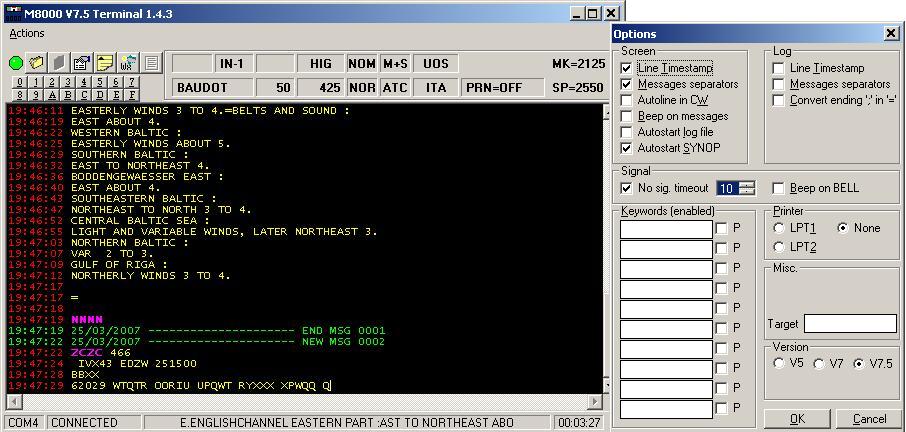Software
The 'lite' distribution requires you manually register the DLL by using the 'regsvr32 WeatherCtl.dll' and 'regsvr32 WeatherDll.dll' commands if you want to decode 'SYNOP' messages. You may also have to download some common generic Microsoft components.
Details
It allows to:
- Connect through any local serial port (COM1 to COM8),
- Display and save decoded data to a file,
- Start/End of message detection,
- Search for up to 10 patterns or words to be highlighted,
- Detect transmission restarting after an inactivity period,
- Paste selected data to any external application defined by its caption name,
- Decode Synop transmission if our Synop Decoder Active/X has been installed,
- Retrieve and display decoder current status,
- Change its current settings,
- Manage up to 16 local working profils.
This application has been written in Visual Basic language.
The latest version has been tested with the M8000 V5.1, V7 and V7.51 firmware versions.
Usage
Pictures
| Screen shot of the M8000Term Application |

|
Additional Notes
The SYNOP decoding function can be disabled by unregistering the 'WeatherCtl.dll'. To do that, use the 'regsvr32 /u WeatherCtl.dll' command under the installation directory.
Last revision: 2009/02/04
Donations are welcome ...